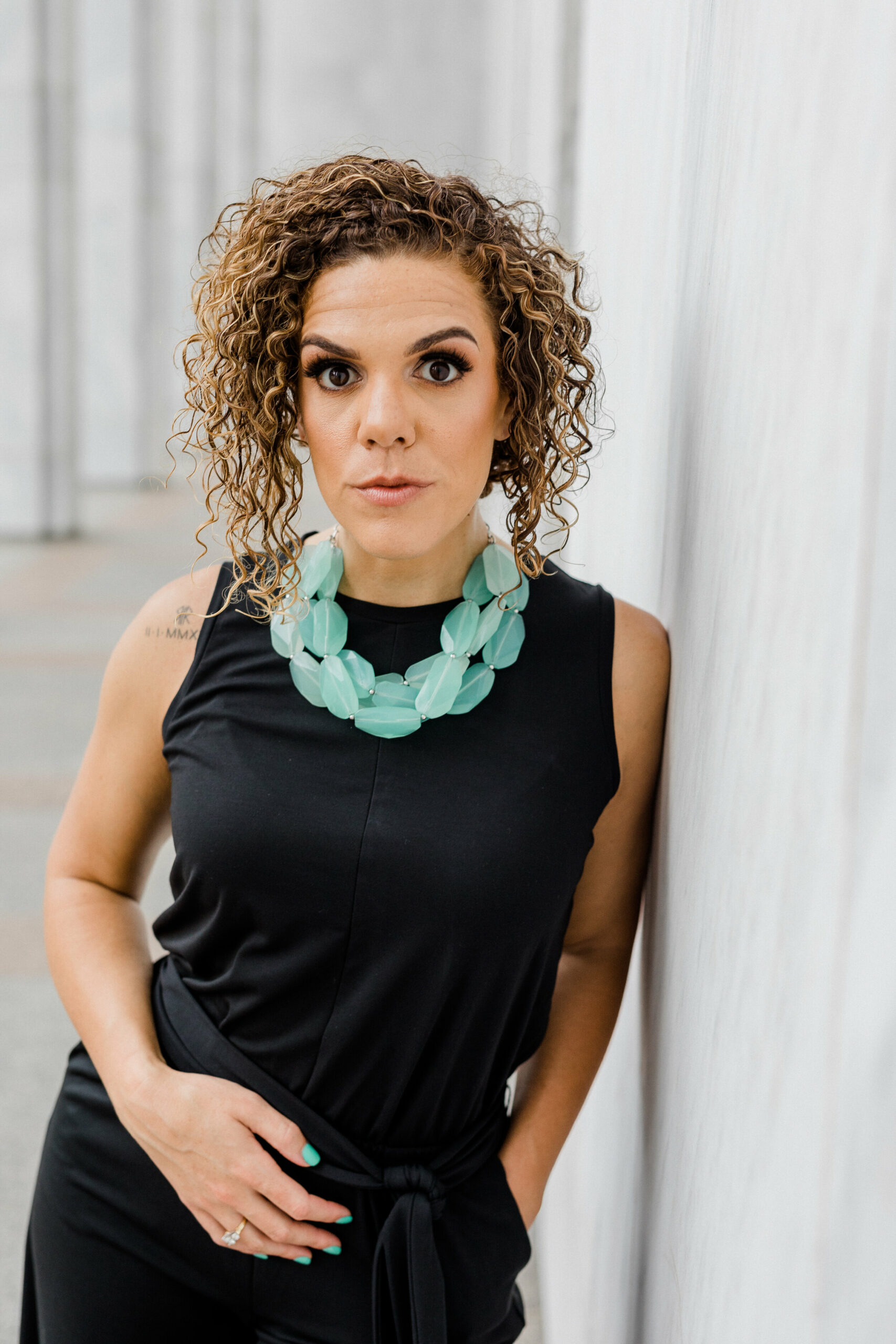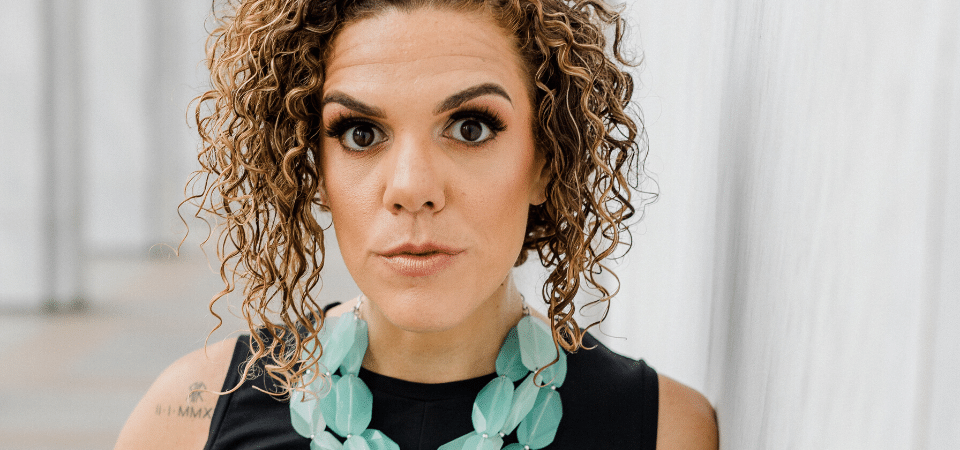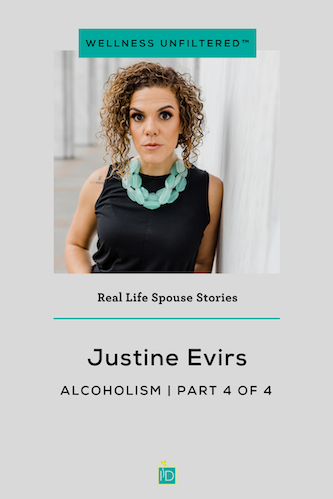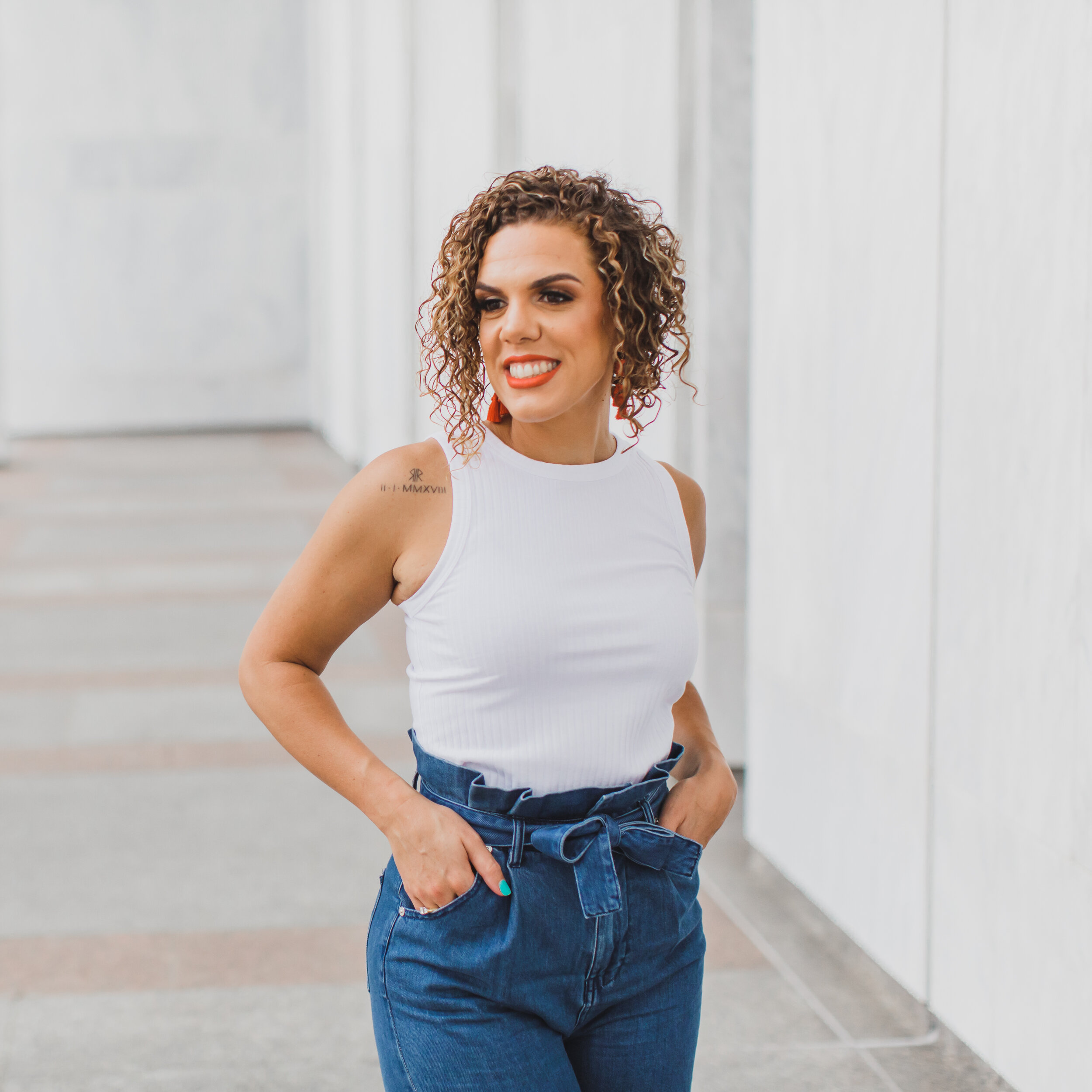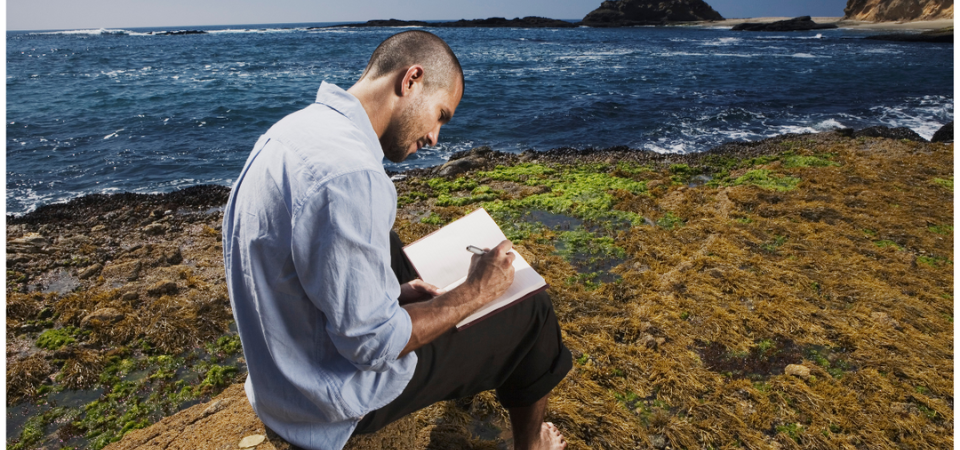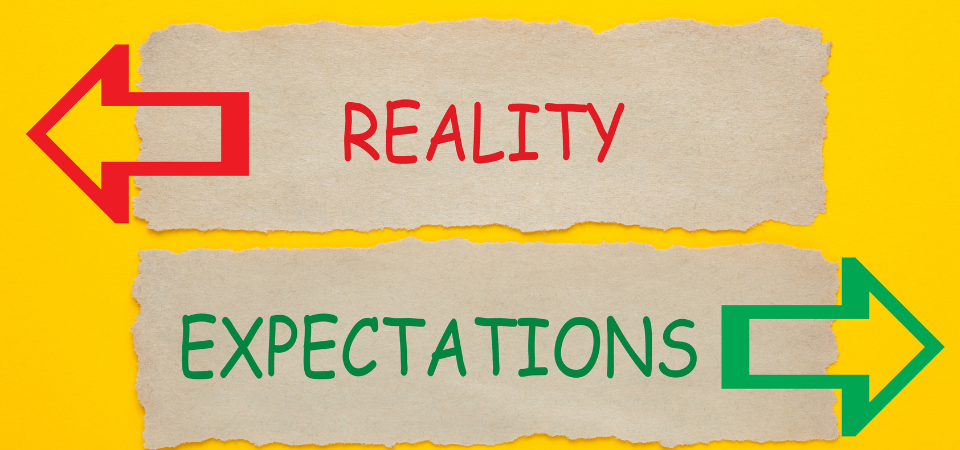The Real Life Spouse Stories Series is part of our Wellness Unfiltered™ program. It’s a platform for military spouses to share their struggles with tougher wellness topics in a Facebook Live series. They’re sharing these stories to help with their healing, open up conversations so other military spouses know that they aren’t alone, provide resources to people struggling with something similar, and to help the community know how to better help others who are going through difficult wellness issues. Below is an excerpt of Justine’s feature.
Justine Evirs
>
“I wish I would have known that you are never cured from alcoholism.”
Justine Evirs is a social entrepreneur and visionary who is focused on creating change in a digital world for underrepresented populations. As a Navy veteran, Navy spouse, and first generation college graduate, she is proud of the work she has accomplished in an eight-year higher education career. During that time she was well known for her ability to build innovative programs and her unique servant leadership style.
An interview about this series was conducted by Samantha Peterson and featured on We Are the Mighty.
This is part four of my four-part series covering the four stages of alcoholism. My intention is to share my story, some things that I have learned along the way, and some helpful resources. If I can help one person, sharing my story will be worth it. Alcoholism among military spouses is something we need to talk more about. Part 4’s Facebook Live interview with Justine and Kimberly Bacso comes in two segments: Segment 1 | Segment 2
If you didn’t catch the Part 1, Part 2, and Part 3 blog posts and Facebook Lives, that’s a great place to begin before jumping into my Stage 4 story. One of the biggest red flags from Stage 1 was my inability to get through a stressful situation without drinking. In Stage 2 it was that I developed an inability to resist. And in Stage 3, things escalated from social/heavy drinking to drinking alone a lot and even starting to secretly drink during the day.
Can you do a quick recap of Parts 1, 2, and 3?
In Part 1, we looked at Stage 1 of alcoholism and highlighted the definition of alcoholism and provided education on the four stages of the disease. We talked a lot about how I developed the habit of managing stress with alcohol. In Part 2, we looked at Stage 2 of alcoholism and I talked a lot about how I quickly developed the inability to resist alcohol. I also shared a lot of research and then my story alongside those facts to support how the progression of alcoholism can sneak up on you if you don’t arm yourself with the facts. In Part 3, we looked at Stage 3 of alcoholism and I talked about how I hit rock bottom and the turning point that led me to decide to quit drinking.
What happens in Stage 4 of alcoholism?
According to alcohol.org, Stage 4 is the late alcoholic stage. Characteristics of this stage may include developing serious health issues and prioritizing drinking over friends, family, and a job.
Did you experience Stage 4 of alcoholism?
I don’t think so, but to be honest, I really don’t know. I always wonder what the doctor would have said if I would have made my way in there or ended up in rehab when I first quit drinking.
Can you share a story that shows how Stage 4 affected you or someone you know?
Yes, unfortunately I can. When I was growing up, my grandmother was sober. I remember hearing stories about how much she used to drink before I was born and I would always see her AA chips in her office. Fast forward to six years ago at my grandfather’s (her husband) funeral. Our entire family decided to do a tequila shot in his honor and she decided to join in with us. From that day forward she drank herself to death in only four short years.
What are some things you wish you would have known that you know now?
I wish I would have known that you are never cured from alcoholism. It is a disease and once you cross into alcoholism, the only thing that will ever cure you is not drinking. I wish I would have known these things that day when my grandmother took that shot with us before we went to my grandfather’s funeral. If I would have known that her body would have picked up right where it had left off thirty-three years prior to that drink, I would not have enabled her to take that drink. Watching her lose everything she worked her entire life to achieve which included her self-esteem, self-worth, and dignity, I would have actually never ever drank in front of her.
How did the media play into the way you viewed Stage 4 back in those days?
I think the media shows the image of Stage 4 well—so well that I really didn’t think I was an alcoholic because I didn’t think I fit the image of what was being shown on television. I think in most cases we typically see Stage 4 in the media so it’s really hard for someone in Stages 1, 2 or 3 to see themselves in that person or story.
Can you identify a turning point when you realized that things were really starting to take a turn for the worse with your grandmother?
I remember watching her start out with wine coolers shortly after my grandfather’s funeral, but then quickly move on to wine, and then to mixed drinks. It wasn’t too long after when I found her drinking full glasses of straight vodka because it looked like water and she thought no one would know that she was drinking that much.
Did you ever think you were an alcoholic during this time in her life?
I did. I was in Stage 3 of alcoholism when she was drinking herself to death. But, I totally had no idea. That was my reality. I remember thinking that maybe I had a problem but then I would always compare myself to her. If I did that, I would be able to talk myself out of being a “real alcoholic.” That is the tricky part with this disease. It will always find a way to find someone or something that is worse off than you, so you can justify your own habits.
What is something you wish you would have known about Stage 4 during this critical time with your grandmother?
I wish I would have known more about the recovery process. I wish I would have known how to help or support my grandmother better. I wish I would have suggested rehab instead of being so angry at her for not quitting on her own. I wish I would have understood how sick she was and understood how she couldn’t quit on her own.
If military spouses have family members or friends who are struggling with this stage of alcoholism what would you suggest they do?
Support them emotionally. Tell them that you know that they are sick and that deep down inside you know that they are still in there. Tell them that you believe that with the right help they can be free of the obsessive need to drink every day.
What would you say to military spouses who are seeing themselves in your story today?
Find help. Alcoholics Anonymous truly is anonymous and there are people there who will be more than happy to help you. If you aren’t able to get to an in-person meeting right now, there are several online options listed under resources below. If you aren’t ready for those rooms, please send me a message. I am happy to help in confidence. Send me a message via Facebook (we don’t have to be FB friends for you to send me a message), LinkedIn, or email.
What resources are available to military spouses?
Therapy is free for us now and easier to get access to than ever before. You don’t have to go on base. You can find any location in your local area. Ask if they accept Tricare and, if so, then you can see them. Please take advantage of it whether you are struggling with addiction or not.
Resources
-
How to help an Alcoholic
-
Virtual AA Meetings
-
Between Breaths – A Memoir of Panic and Addiction by, Elizabeth Vargas
-
This Naked Mind – Control Alcohol. Find Freedom, Discover Happiness & Change Your Life by Annie Grace
Alcoholism | Part 4 of 4
ABOUT JUSTINE
Justine Evirs
Justine Evirs is a Social Entrepreneur and Visionary who is focused on creating change in a digital world for underrepresented populations. She is currently serving as the President and Founder of The Paradigm Switch (TPS), which is a digital nonprofit that teaches military spouses how to work anywhere in the world. TPS’s Digital Career Bootcamp offers four high-impact, low cost programs that serve as a catalyst for digital transformations of individuals and corporations across the globe. As a Navy veteran, Navy spouse, and a first generation college graduate, Justine is proud of the work she has accomplished in an eight-year higher education career. During that time she was well known for her ability to build innovative programs and her unique servant leadership style. In 2017, she set out to make a larger difference in the world, which led her to find her new found love for innovation & entrepreneurship.
